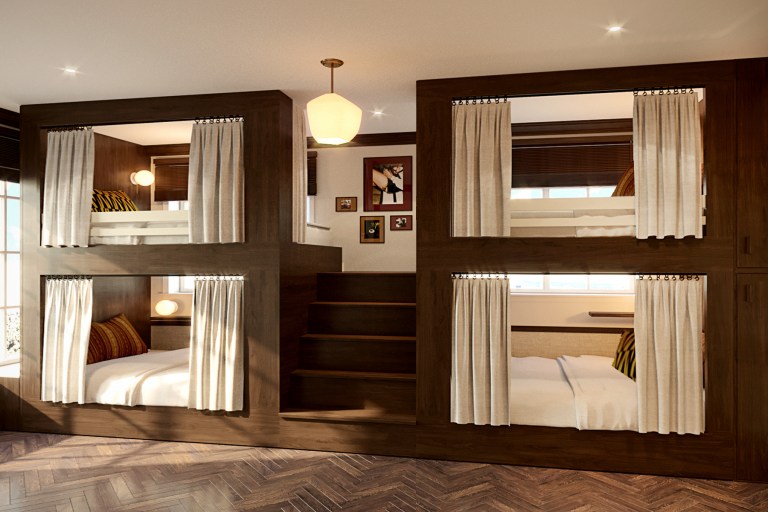How Apps And Bunk Beds Factor Into A New Connected Travel Experience

While some accomodations may cater to group travelers with multi-bedroom units, Life House CEO and Co-founder Rami Zeidan believes that might not be the most efficient use of space. “What travelers need is not bigger apartments, but rather more beds in a smaller space,” he told PYMNTS in an interview. Zeidan brought that ethos to his hotel startup, which plans to offer rooms with bunks as well as units with beds.
The mix between rooms with bunks and those with beds varies depending on the location. While only 10 percent of rooms in its upcoming Little Havana hotel in Miami have bunk beds, the proportion is closer to 40 percent in the hotel it plans to open in nearby South Beach, as Zeidan said there’s more group travel in South Beach compared to Little Havana.
But his properties will be similar to some higher-end hotels when it comes to linens, pillows and toiletries, which will be provided by an upscale brand. (Le Labo in this case.) The goal is for each property to have unique textures, finishes and coloring palettes, because, Zeidan said, travelers want a sense of place, and he wants his designs to reflect that need. This drive for innovation extends to the company, which doesn’t run like a traditional hotel brand.
The Hotel Concept
Zeidan’s company is vertically integrated from development to design, as well as operations and technology. Life House develops real estate by managing the construction of hotels and designs all of the properties itself, while also taking care of operations and branding. Instead of signing leases, the company opts for management contracts. Zeidan equated the concept to the software industry: “It’s really a similar model to a SaaS [software-as-a-service] tech product,” he said.
Life House also brings a high-tech narrative approach the booking journey; the process starts with a story about the property and seeks to make the experience easy for consumers. Other hotels, by comparison, don’t often own their booking engines, according to Zeidan. Instead, they use third-party platforms; this can be less than ideal, as their branded experiences can vanish when consumers visit a URL that is no longer on-brand. With Life House, Zeidan said, “we own the entire experience.”
But the biggest difference is after travelers book their rooms. At that point, they can access a social network to see who else is traveling to their destination. According to Zeidan, more people are traveling, but there isn’t really a social network for interaction between these people. “They’re in a market where they don’t have friends or people they know,” he said, adding that these jetsetters are hungry to connect.
The Check-In Experience and Neighborhood
When it comes time for the check-in experience with Life House, travelers can either visit a kiosk or talk with a staff member. Zeidan noticed that some guests – even travelers who frequent properties in the luxury space – want to go straight to their rooms without having to talk with anyone. For guests who do want to check in with a person, they can visit with a community manager for the more traditional hotel experience. Staffers can even show guests to their rooms if they desire.
The guests that do use the kiosks interact with a fairly simple technology. Zeidan’s kiosks are tablets loaded with an app the company built. “It’s just a much more seamless experience than having to wait in line,” he noted. And, while Zeidan said that other industries have made good use of kiosks, he believes it would be too ambitious to get rid of the people at the front desk altogether. Still, the technology is emerging, and, as the PYMNTS Unattended Retail Tracker notes, the projected value of the global self-service market is expected to reach $13 billion by 2023.
Whether guests use the kiosks or the check-in desk, Zeidan is planning to open his first branded hotel in the Little Havana section of Miami, which he describes as a “culturally rich, well-located neighborhood.” The hotel, which is set to open in a historic building this December, is near the airport and downtown, as well as the beach. That goes to show that hotel companies are not only innovating in technology and room setup, but are also carefully thinking about the neighborhoods they choose.